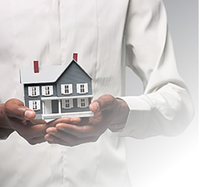

With prices rising faster than inflation in most areas and at several times the rate of inflation in many, French property is an attractive investment proposition, particularly in popular areas such as the Mediterranean coast and parts of Brittany and the west coast.
A recent survey by property investment specialist Assetz concluded that French property is outperforming that of the UK, Spain and Florida with an average 92 per cent return on invesment compared with 81 per cent in Florida and just 35 per cent in the UK. However, it’s important to be fully aware of the nature of investment in property and the risks involved.
There are various kinds of property investment. Your family home is an investment, in that it provides you with rent-free accommodation. It may also yield a return in terms of increased value (a capital gain), although that gain may be difficult to realise unless you trade down or move to another region or country where property is cheaper. Of course, if you buy property other than for your own regular use, e.g. a holiday home, you will be in a position to benefit from a more tangible return on your investment. There are four main categories of investment property:

A property investment should be considered over the medium to long term, i.e. a minimum of five and preferably 10 to 15 years, as you need to recoup the high purchase costs – up to 40 per cent of the value of a home – when you sell. You also need to take into account income tax if a property is let and capital gains tax when you sell a second home. Bear in mind that property isn’t always ‘as safe as houses’ and property investments can be risky over the short to medium term.
When buying to let, you must ensure that the rent will cover the mortgage (if applicable), running costs and periods when the property isn’t let. Bear in mind that rental rates and ‘lettability’ vary according to the region and town, and that an area with high rents and occupancy rates one year may not be so fruitful the next. Most popular parts of France now have a surplus of holiday rental property and many owners are turning to long-term rental, for which the demand is growing (e.g. among house-hunters, people on short-term work contracts and retirees wanting a winter retreat), although this necessarily limits your own use of a property. An English-speaking company specialising in long-term property rental management is Rent a Place in France (05 61 88 77 08, http://www.rentaplaceinfrance.com ).
Gross rental yields (the annual rent as a percentage of a property’s value) are from around 5 to 10 per cent a year in most areas (although gross yields of 15 per cent or more are possible); net yields (after expenses have been deducted) are 2 to 3 per cent lower.
Before deciding to invest in a property, you should ask yourself the following questions:
This article is an extract from Buying a home in France. Click here to get a copy now.